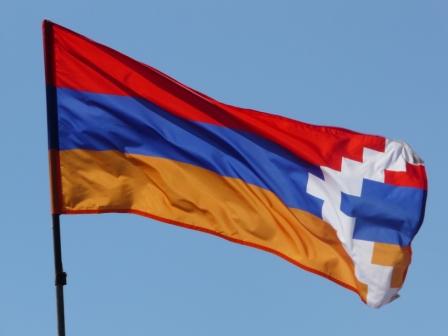In the shadow of Russia’s war in Ukraine, a series of clashes and a subsequent period of quiet have raised both fears about renewed fighting in Nagorno-Karabakh and hopes that diplomacy might still bring the parties closer to peace. In March, Azerbaijani forces seized territory around Farukh, an ethnic Armenian-populated village that has been patrolled by Russian peacekeepers since a ceasefire ended the 2020 war that upended an almost three-decade status quo in the region. The Armenian government, along with Nagorno-Karabakh’s de facto authorities, worried that the move might herald a broader Azerbaijani offensive, taking advantage of Moscow’s focus on Ukraine. But subsequent talks between Yerevan and Baku appear to have calmed the situation and even suggested some areas for future engagement, indicating that neither side has ruled out the possibility of a peaceful settlement, although the two remain far apart on many core issues. While it remains unclear whether the situation will deteriorate or improve, the EU can help coax things in a positive direction by facilitating diplomatic efforts, preserving Russia’s positive role in conflict resolution and making clear that it will stand behind any agreed steps toward an eventual settlement, with financial and technical support.
To enhance prospects for peace, the EU and its member states should do the following:
- Having already brought leaders from Armenia and Azerbaijan together for talks, Brussels should work with both sides to develop a format and agenda for further negotiations – including by providing a venue, facilitating regular working groups on specific issues and using its good offices to try to iron out differences among state and military officials at all levels. Brussels should also continue to help the two countries resolve disagreements over their common border – particularly at flashpoints, such as Azerbaijan’s Kelbajar and Armenia’s Gegharkunik, which have seen particularly deadly skirmishes since 2020. At the same time, the EU should preserve the role of the Organization for Security Cooperation in Europe’s (OSCE) Minsk Group, which has been the main international format for negotiations on the Nagorno-Karabakh conflict and still has an important – albeit likely more limited – role to play.
- Despite rising tensions between Moscow and European capitals amid the war in Ukraine, the EU should continue to support Russia’s efforts to resolve the dispute between Armenia and Azerbaijan, avoiding actions that suggest it is looking to block any mediation efforts by Russia.
- Brussels should make clear that, as the region’s largest donor, it is prepared to fund a peace dividend in the form of financial support toward easing the countries’ most pressing socio-economic problems, including by helping meet the needs of displaced people, in the event that the parties reach a peace settlement. In the meantime, it should boost funds to help clear landmines and unexploded ordnance from conflict zones, which are now too dangerous for reconstruction or resettlement.
- The EU and member states should not neglect engagement with de facto authorities and residents of Nagorno-Karabakh. Indeed, it should communicate to a sceptical Baku that such engagement is essential for ensuring buy-in to any future peace deal. The ethnic Armenian population of Nagorno-Karabakh is nervous that a deal will mean full Azerbaijani control of the enclave, forcing them to flee. Support for these people’s post-war needs will be crucial to sustaining a deal, but it must be carefully managed, as Baku views any engagement with Nagorno-Karabakh’s de facto authorities as undermining its claim to the territory.
The International Crisis Group
Read the full commentary here.
